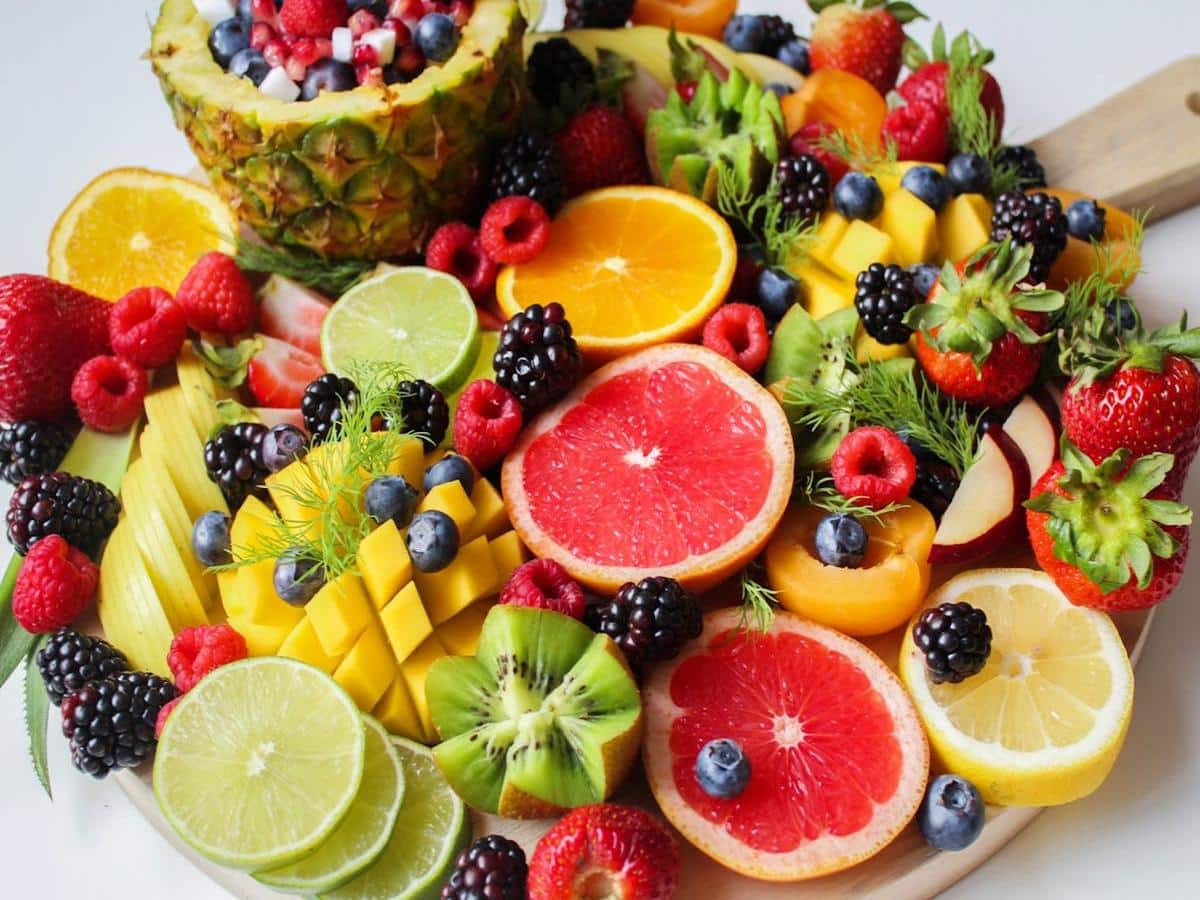Apples, oranges and pineapples are some of the best fruits for dogs to eat. Fruits are nature’s sweet gift, brimming with essential vitamins, minerals, and antioxidants that benefit both humans and dogs alike.
But not all fruits are created equal when it comes to your furry friend’s diet. As a responsible pet owner, it’s crucial to know which fruits are safe and offer health benefits to dogs.
Feeding the right fruits in appropriate quantities can help improve your dog’s digestion, energy levels, and overall well-being.
In this comprehensive guide, we’ll explore 10 healthy fruit options that your dog can safely enjoy and how to incorporate them into their diet.
Table of Contents
ToggleBest Fruits for Dogs to Eat
1. Apples
- Benefits of Apples for Dogs
Apples are rich in vitamins A and C, which help boost immunity and maintain healthy skin. Their crunchy texture acts as a natural toothbrush, helping to clean teeth and reduce plaque buildup. - How to Serve Apples to Dogs
Remove the seeds and core, as they contain cyanide compounds that can be toxic. Slice apples into small, bite-sized pieces to avoid choking hazards. - Recommended Portion Size
One or two small apple slices for smaller dogs, and a half apple for larger dogs as an occasional treat.
2. Blueberries
- Why Blueberries Are a Superfood for Dogs
Blueberries are packed with antioxidants, particularly vitamin C and phytochemicals, which combat free radicals and reduce inflammation. They are also low in calories, making them perfect for weight-conscious dogs. - Serving Ideas for Blueberries
Feed blueberries fresh or frozen. Add them to homemade dog treats, sprinkle on meals, or serve as standalone snacks. - How Much is Too Much?
Limit to a handful of blueberries for large dogs and 4–5 berries for smaller dogs.
3. Bananas
- Nutritional Benefits of Bananas
Bananas are rich in potassium, vitamin B6, and dietary fiber, which help regulate your dog’s digestion and muscle function. Their natural sweetness makes them an excellent energy-boosting treat. - The Proper Way to Serve Bananas
Peel the banana and cut it into small, manageable pieces. Mash it into your dog’s food or freeze it for a cooling treat on hot days. - How Often Can Dogs Eat Bananas?
Feed bananas in moderation—once or twice a week—because they have a high sugar content.
4. Watermelon
- Why Watermelon is Ideal for Dogs
Watermelon is 92% water, making it perfect for keeping dogs hydrated during the summer. It also contains vitamins A, B6, and C for overall health. - Avoid the Seeds and Rind
Always remove seeds and the tough rind before serving. Seeds can cause digestive blockages, while the rind is hard to digest. - Serving Size Guidelines
Feed 2–3 small cubes for smaller dogs and up to a cup for large dogs.
5. Strawberries
- Key Nutrients in Strawberries
Strawberries are loaded with fiber, antioxidants, and vitamin C. They also contain an enzyme that whitens teeth, enhancing your dog’s dental health. - How to Serve Strawberries Safely
Wash strawberries thoroughly and cut them into small pieces. For smaller dogs, mashing the berries is a great option. - Recommended Frequency
Strawberries can be fed 1–2 times a week in small quantities.
6. Pineapple
- Why Pineapple is Good for Dogs
Pineapple contains bromelain, an enzyme that aids in digestion by breaking down proteins. It’s also packed with vitamins C and B6, manganese, and fiber. - Preparing Pineapple for Your Pup
Remove the prickly skin and tough core before serving. Cut the pineapple into small, juicy chunks. - Moderation is Key
Pineapple has natural sugars, so limit to a few small pieces to avoid upset stomachs.
7. Cantaloupe
- Benefits of Cantaloupe for Dogs
Cantaloupe is an excellent low-calorie snack loaded with hydration, antioxidants, and vitamins A and C. It’s ideal for overweight or senior dogs. - How to Feed Cantaloupe
Remove the rind and seeds, then dice into small cubes. Freeze the pieces for a refreshing summer treat. - Portion Size Recommendations
Feed a few small chunks for smaller dogs and half a cup for larger breeds.
8. Pears
- Nutritional Value of Pears
Pears are a great source of fiber, copper, and vitamins K and C. Regular consumption supports heart health and reduces inflammation. - Serve Pears the Right Way
Remove the core and seeds, as they contain traces of cyanide. Cut into bite-sized pieces for easier chewing. - Best Serving Practices
Feed a small amount—1–2 pear slices—once in a while as an occasional snack.
9. Raspberries
- Health Benefits of Raspberries
Raspberries are low in sugar and calories but high in antioxidants and anti-inflammatory properties, making them perfect for aging dogs or those with joint issues. - How to Feed Raspberries
Serve fresh or frozen. Add them to meals or offer as treats in small amounts. - Limit to Prevent Overfeeding
Too many raspberries can cause gastrointestinal upset. Stick to a handful for large dogs and fewer for smaller breeds.
10. Oranges
- Are Oranges Safe for Dogs?
Yes, oranges are safe in small quantities. They’re packed with vitamin C, which boosts the immune system, and potassium for proper muscle function. - Peel Before Serving
Remove the peel and seeds to avoid choking hazards and stomach irritation. Offer small, seedless segments. - Portion Control for Oranges
Limit intake to 1–2 small orange segments to prevent excess sugar consumption.
What Fruits to Avoid: Toxic Fruits for Dogs
While many fruits are beneficial, some can be toxic:
- Grapes and raisins – Can cause kidney failure.
- Avocados – Contain persin, which is toxic.
- Cherries – The pits contain cyanide.
- Plums – The pits are hazardous and indigestible.
How to Safely Introduce Fruits to Your Dog
- Start with small portions to monitor for allergic reactions.
- Introduce one fruit at a time to assess tolerance.
- Always wash fruits thoroughly and remove any seeds, pits, or rinds.
Conclusion
Incorporating fruits into your dog’s diet can be both nutritious and enjoyable. The key is moderation, proper preparation, and choosing dog-safe options.
Apples, blueberries, bananas, and watermelon are just a few of the best choices for your furry companion. Always consult with your veterinarian before making significant changes to your dog’s diet. Give your dog the gift of health with these fruit options today!






